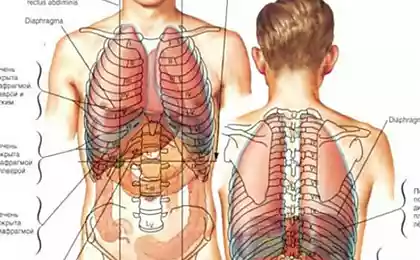1444
Mood changes with the weather

As in the winter everything slows down, and many often get depressed? What are the reasons that the weather affects the short-term, and sometimes long-term changes in mood?
"The study of relationships between weather and the mood is very complicated process," said Dr. Stephen Lancaster, assistant professor of psychology at Drake University in the United States. "Provided that in the winter the average temperature is stable, we can speak about the stability of man, but deviations from the norm, this time can be truly intolerable».
"People often overlook the street in the clear and warm days, and when they are outdoors, in nature, there is an opportunity to make a lot of nice things that certainly have a positive effect on mood," says Dr. Lancaster. "The strongest effect of weather can be observed in the warm spring days, when after the winter cold people are really eager to take advantage of good weather and go outside for walks, outdoor games and other pleasant occupations them.
While on the street, people get vitamin D3, which in turn affects the increase in seratonin in the brain.
The fact that you can get out into the fresh air, walking, engage in any enjoyable experience on the street, which causes an increase in the mood, we always associate with sunny days. But in some cases, people are more sensitive and vulnerable to weather, change it causes a significant and substantial changes in mood and well-being in general. In some people, the level of so-called "happiness hormones" is constantly underestimated, and when exposed to the sun it rises sharply. This may explain why some fall into a deep depression and feel exhausted at times when the days become shorter and less sunlight.
As reported at the Mayo Clinic, there are three main reasons for seasonal affective disorder:
1. Lack of seratonin in the brain, which is caused by a small amount of sunlight, and can lead to depression.
2. The level of the hormone melatonin seriously disturbed during seasonal weather changes that can worsen mood and sleep.
3. Personal biological clocks (rhythms) may be frustrated due to lack of sunlight, causing the body to lose orientation when it is time to sleep, and when - wakefulness.
If you - a woman, you have a family member who suffers from seasonal depression, you are black, or living in poverty, your chances of suffering from seasonal depression increased. If the following symptoms are familiar to you, you are most likely vulnerable to downturns winter mood or seasonal depression: a sense of despondency mostly only in the winter, moodiness and strife, drowsiness, eating large amounts of carbohydrates, weight gain, loss of productivity of labor (in the winter). Many people find themselves in similar conditions, but you can not jump to conclusions, this requires a professional diagnosis.
There are several ways to combat self-seasonal depression. You can stay near a bright light source for 30 minutes every day, several times a day, it will help stimulate the brain, simulating sunlight. In severe cases, you can resort to medical decision problems using antidepressants, but only after consultation with the doctor.























